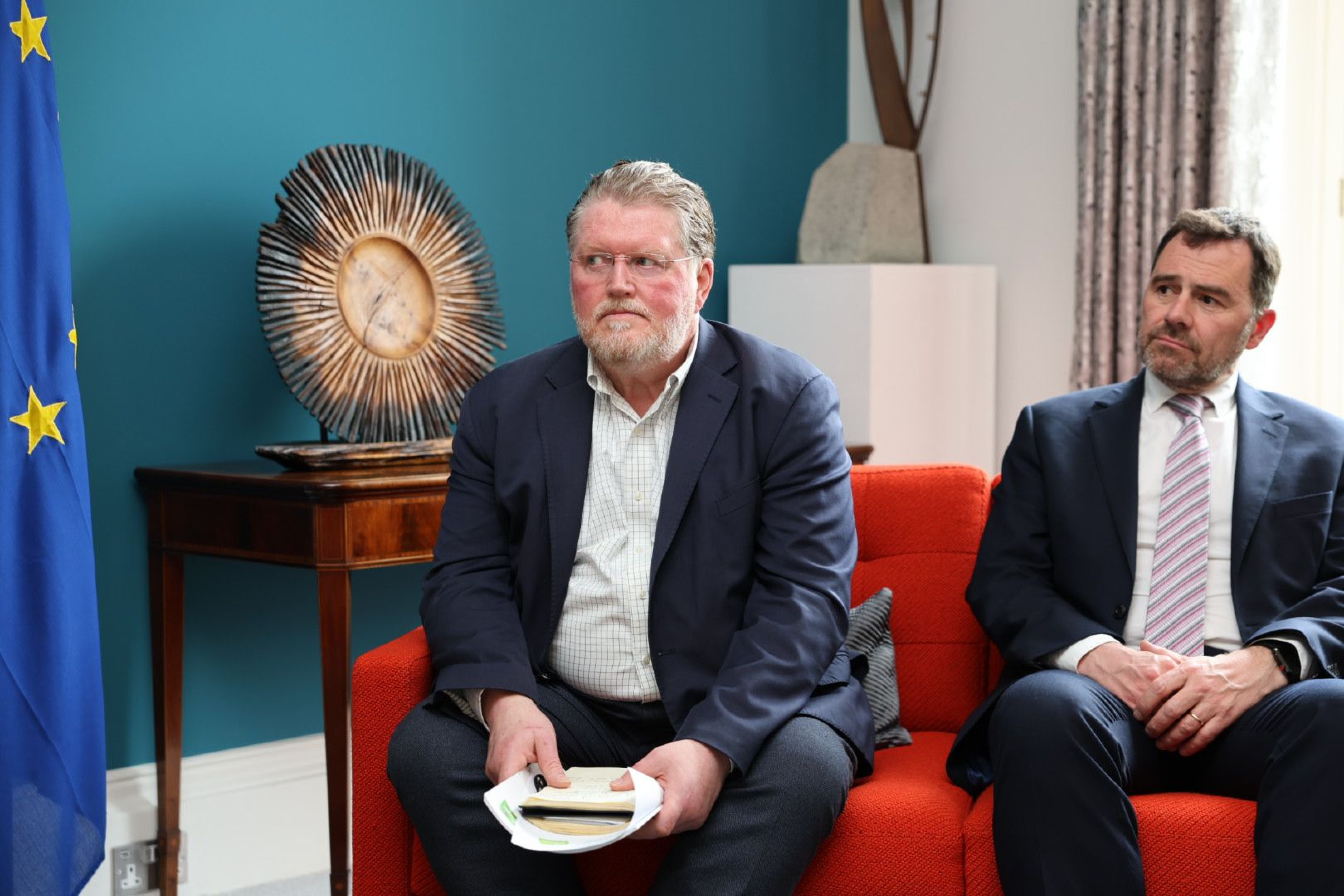
Irish in Britain launched its final report and analysis of the 2021 Census in England and Wales with a panel and discussion hosted by Ambassador Martin Fraser at the Embassy of Ireland in London.
Irish in Britain had commissioned a team of academics led by Dr Alessio Angelo of Nottingham University (meet the team here) to analyse the 2021 Census in England and Wales (this will be followed by analysis of the Census in Scotland, which took place a year later).
The researchers, Professor Alessio D'Angelo and Dr Neil Kaye, presented the key report findings, trends and patterns at the Embassy. This was followed by a panel discussion and Q and A.

The panel was chaired by Maurice Wren, former CEO of the Refugee Council.
He was joined by Irish in Britain's CEO Brian Dalton; Lorraine Maher, founder of IamIrish; Séamus MaCormaic, CEO of the London Irish Centre; Grace Preston, Senior Policy Officer of the Traveller Movement; and Bernard Purcell, editor of the Irish World.
Bernard Purcell highlighted the debt owed to the generation of Irish migrants who came to Britain through the 1940s, 50s and 60s.

Many of those emigrants sent back money "remittances" that represented a significant contribution to the Irish economy during those decades.
Brian Dalton talked about the importance of both supporting the older generation in the community while also providing routes into the community for generational Irish.
Grace Preston pointed to the issue that the Census "lumps together" Gypsy, Roma and Traveller communities despite their distinct histories, but said that the data did point to the inequality experienced by those communities.

Lorraine Maher also pointed to the problem of the Census categories. She highlighted that the 'white-Irish category excludes Black and Brown Irish people from identifying and counted as Irish. This is an issue that Irish in Britain has pursued with the Office of National Statistics, and will continue to do so for future data collection.
A lively discussion followed with attendees from many different community organisations across Britain and a number of academics. Much it focused on the nature of research and how it can reflect the diversity of the community and its needs as well as help organisations in the community direct their work.
Dr Mary Hickman, a high profile academic within Irish studies, pointed out that the quantative data that came from the census would be enriched by the insights that qualitative research can offer.
There was consensus that continued research and knowledge about the Irish community in Britain would help to capture this diverse and evolving identity. Irish in Britain’s Healthy Ageing Project will provide national research on Irish community health in 2024, an important step, alongside the Census research, in understanding community needs for policy makers and service providers.
Irish in Britain commissioned this research project to enable organisations and institutions across the country to respond to emerging need and integrate their understanding of the demographic profile of Irish communities into their practice and provision.
We hope that the data will be used to underpin future organisational activities and funding priorities of our member organisations and the wider Irish community.
Read more about the Census research HERE.
